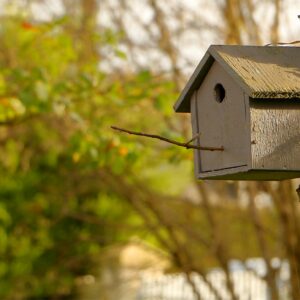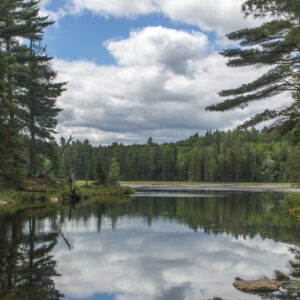Who are the Women for Nature? A conversation between Dr. Dawn Bazely and Maggie Romuld
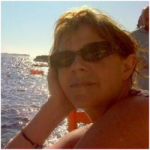
Featuring Women for Nature member Dr. Dawn Bazely, Professor, York University. Written by fellow Women for Nature member Maggie Romuld.
Though Dawn Bazely and I have “known” each other on Twitter for several years, it wasn’t until I interviewed her about her involvement in Women for Nature that I felt as if I’d made a new friend. Animated and enthusiastic, she made me laugh as we chatted about all things Nature Canada – with conversational asides that ranged from growing Brussel sprouts, to rodents, to the Gunning-Fog readability index.

Dawn joined the Biology Department of York University as an Assistant Professor in 1990, and became a Full Professor in 2012. She is an ecologist by training, studying grassland and forest management, climate change impacts on ecosystems, invasive species and science policy. Widely published, she is also active on social media as she attempts to inspire her students and the public to become more aware of the natural world. Dawn truly believes that scientists must work hard at being excellent communicators and she practices what she preaches. Her excitement was infectious when she discussed joining the Adventure Canada Resource Team as a naturalist on an Adventure Canada expedition cruise in 2016. She and other expert resource team members shared their knowledge about regional biodiversity, history, and culture along the route of the “Mighty St. Lawrence” cruise from Quebec City to St. John’s, NL.
Dawn doesn’t have enough time to pursue her many hobbies, but she is passionate about making time for gardening and canning, a skill she said she picked up because of a personal and professional interest in sustainability. An aspiring locavore, she started preserving food as a natural extension of using local, seasonal bounty. For seven years, one of Dawn’s roles at York was directing the University’s Institute for Research and Innovation in Sustainability. On Earth Day this year, her commitment was recognized when she was awarded the York University President’s Sustainability Council Leadership Award.
When asked to choose her favourite garden food, Dawn replied “rhubarb” with no hesitation whatsoever. Sweet desserts, savoury dishes, you name it, she loves it. And Dawn is crazy about guinea pigs. Allergies in the family prevented them from having more traditional pets, so she said she has become “ridiculously attached” to rodents. Her oldest daughter obviously shares that love, fostering three guinea pigs from the Kitchener Guinea Pig Sanctuary, this past academic year, and bringing them to the family home for Christmas vacation. (The guinea pigs even had their own Instagram account!)

Photo of fostered three Guinea Pigs.
What inspired you to become a Woman for Nature?
Dawn first heard about Women for Nature from fellow York biology faculty member, Distinguished Research Professor, Bridget Stutchbury. After talking with Bridget, she became a founding member of Women for Nature in 2014, because she feels it is important to support a national approach to nature advocacy. She thinks that Canadian conservation groups are more fragmented than those in the UK and USA, with less of a central national voice, and impact. Dawn believes that by coming together under national umbrella and backbone organizations, the reach of local groups will expand, and the cumulative impact will lead to greater awareness of environmental benefits and issues, better funding and measurable outcomes.
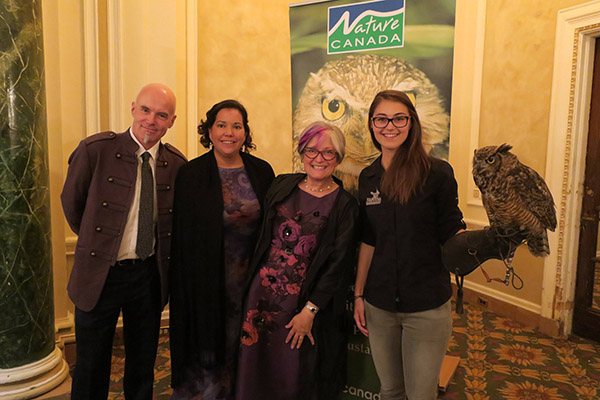
Dave Reid, Heidi Langille (with whom Dawn worked on the Adventure Canada Arctic Explorers trip), Dawn Bazely, Darwin the Owl and his handler.
Who were your mentors and what books have inspired you?
Dawn said she was lucky to have had many influential mentors in her life, both men and women. She singled out Kathy Martin, Professor in the Faculty of Forestry at UBC, who gave her excellent career advice during her undergrad and graduate student years at Toronto; and Judy Myers, Professor Emerita in the Department of Zoology, UBC, whom she met while pursuing her doctorate at the Edward Grey Institute of Field Ornithology, with Professor Lord John Krebs.
According to her Wikipedia bio, Myers was at the “forefront of Canadian post-secondary education’s efforts to recruit more women in STEM fields during the late 1980s and early 1990s, when she was Associate Dean of Science at the University of British Columbia.” In 2003, Myers and Dawn co-authored “Ecology and Control of Introduced Plants” (Cambridge University Press), which was selected as an American Library Association CHOICE Outstanding Academic Title in 2005.
Dawn confesses to being a “big reader,” but with all the essays she has to read, she has developed a fondness for audio books. Right now, she is reading “The Invention of Nature” by Andrea Wulf. Calling it inspiring, she said that “everyone should read it.” After such a spirited endorsement, I felt compelled to learn more. This award-winning book “reveals the extraordinary life of the visionary German naturalist Alexander von Humboldt (1769-1859) and how he created the way we understand nature today. Though almost forgotten today, his name lingers everywhere from the Humboldt Current to the Humboldt penguin. Humboldt was an intrepid explorer and the most famous scientist of his age.” Inspiring indeed!
What advice would you give to future Women for Nature leaders?
Dawn’s first piece of advice to future Women for Nature leaders is to build networks and seek out many mentors. Ask them about their lives and careers; ask them to pass on the knowledge they have gained and the experiences they have had.
Dawn also emphasized that young leaders should understand that leadership is a set of skills that can be learned and developed, adding that women still tend to think they shouldn’t be taking the lead. According to Dawn, the best leaders are “able to be coaches who find people’s strengths and create a platform for others to succeed.” Young women should embrace opportunities to learn about leading, and then get out there and do it. “Everyone has something to teach and contribute,” she said. Wiser words were never spoken.
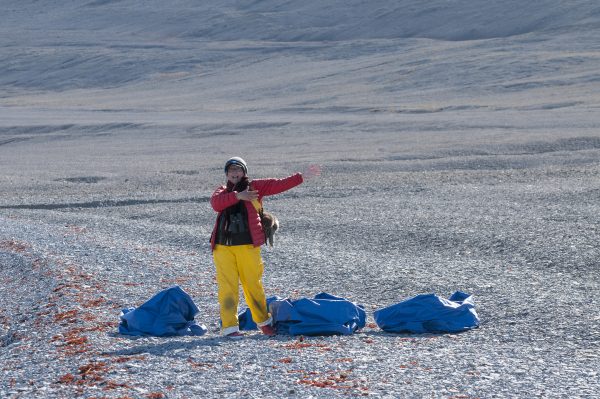
Dawn on Beechey Island, Nunavut, when she was the resident Botanist on the Adventure Canada Arctic Safari trip 2016. (photo Andre Gallant).


